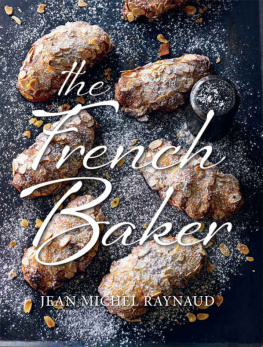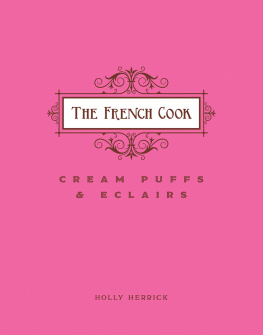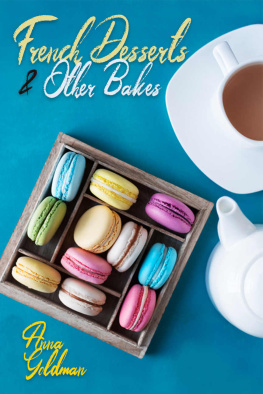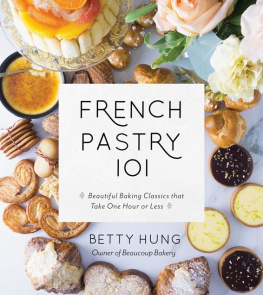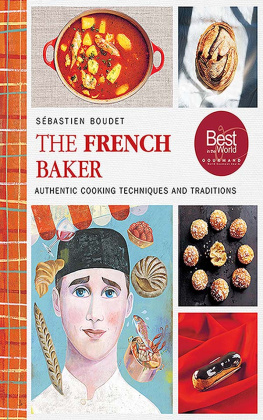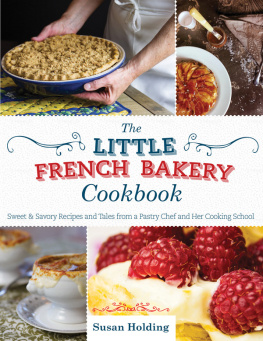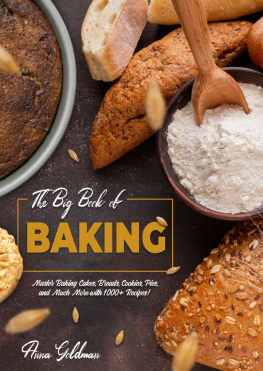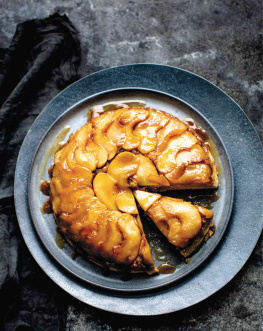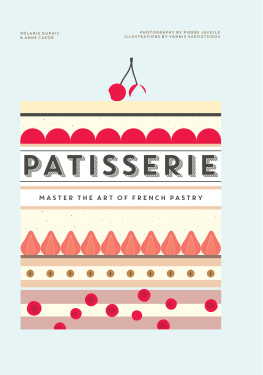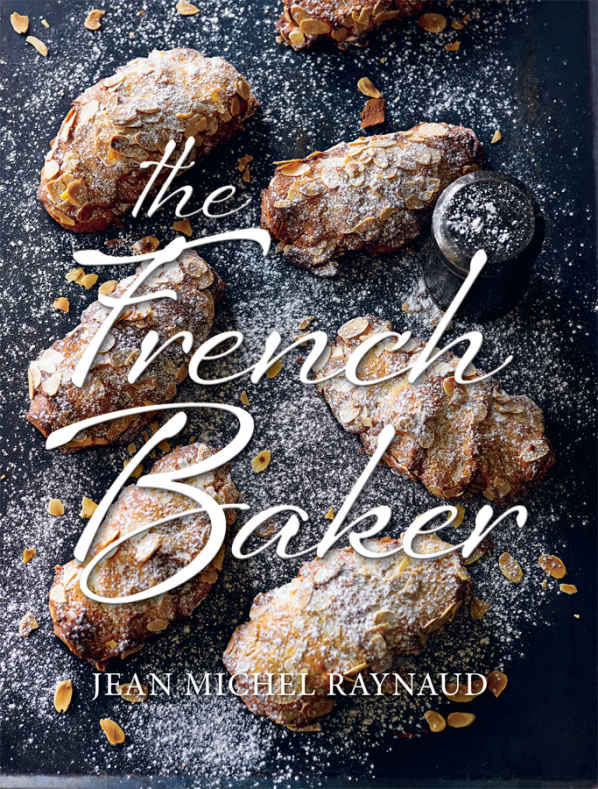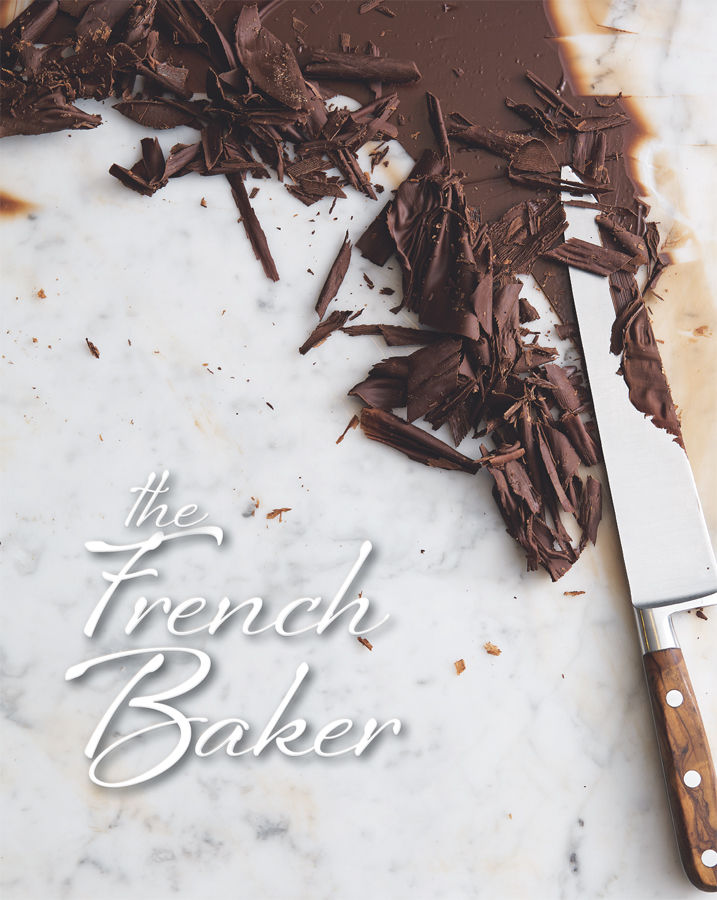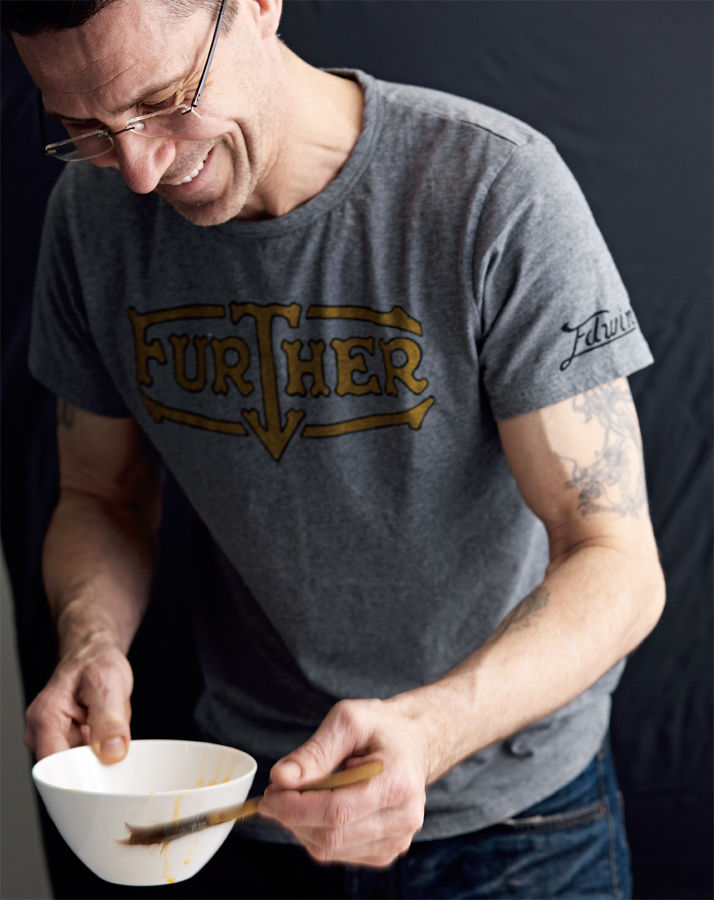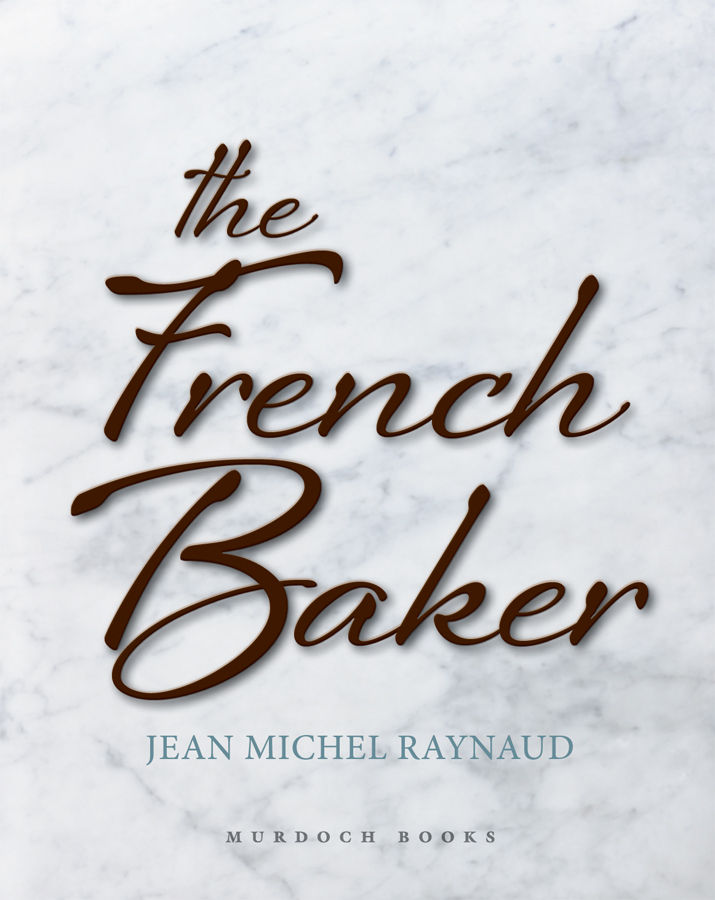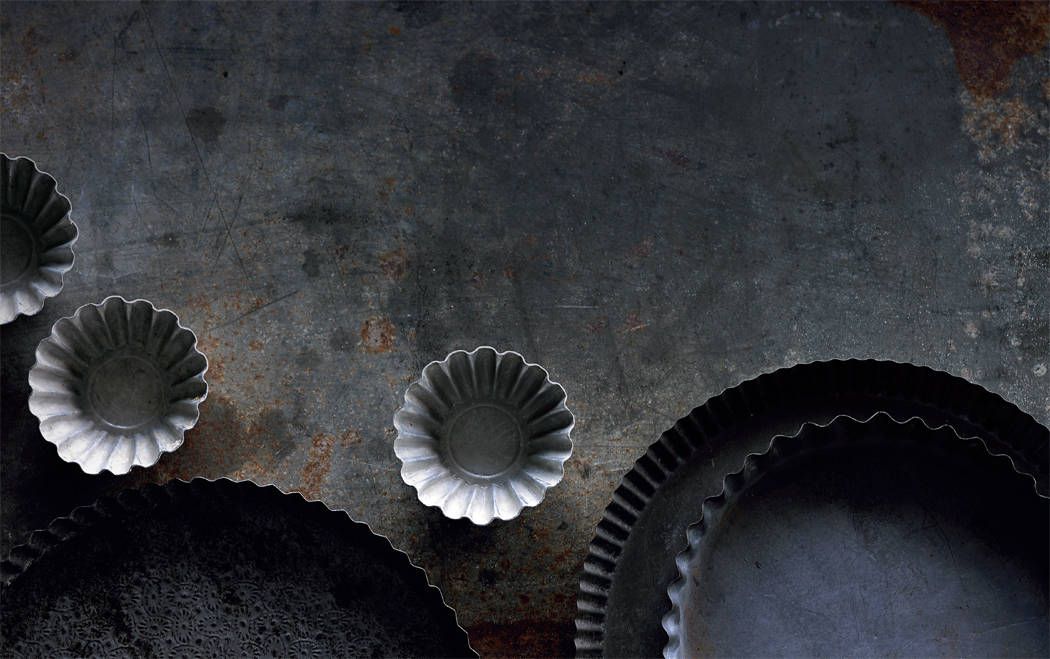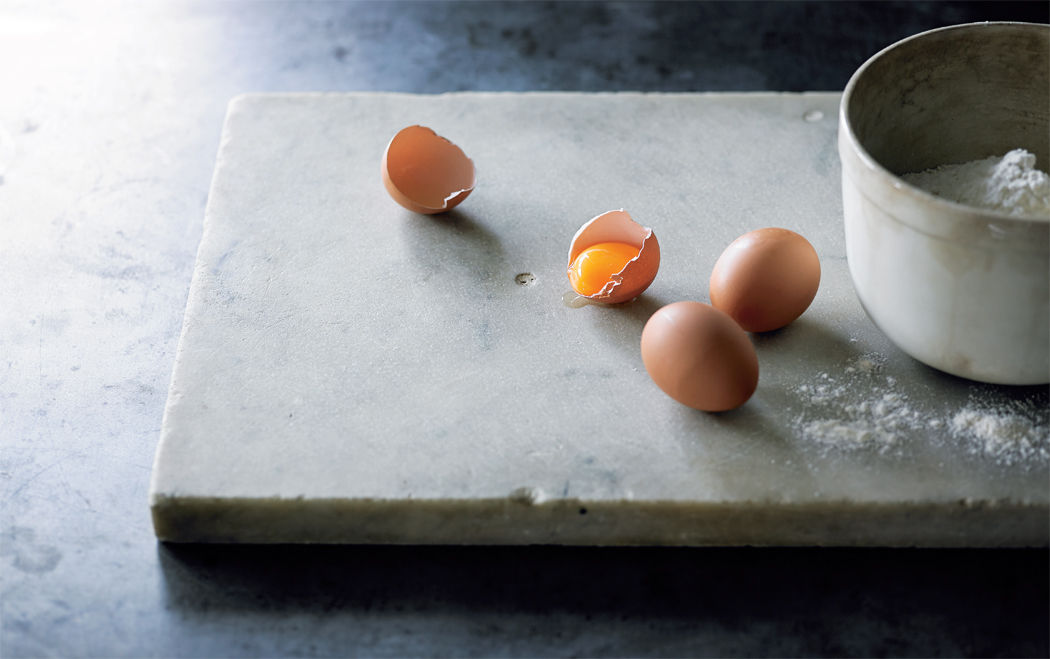This book is dedicated to my beautiful family, without whom there would be nothing.
From then to eternity
It took some perspective for me to fully understand how I became involved in the food industry and how I developed my passion for baking and ptisserie. Certainly, it wasnt until I had moved away from the country that I was brought up in that I began to realise how deeply food is entrenched in French culture and how it infuses every aspect of ones life.
Surprisingly, perhaps, my family was never overly enthusiastic about food, unlike some of my friends families. As a child I dont recall my parents ever cooking elaborate dishes, they rarely drank wine except on occasions such as Christmas or perhaps a birthday, and we hardly ever ate bread with our food or drank caf au lait hardly the typical French family at all. Nowadays, however, the story is a little different my mother has discovered her inner masterchef and my father can be often found in the kitchen slicing tomatoes or foraging in the garden for herbs. But when my sister and I were growing up, food was regarded almost as an afterthought, a necessity more than anything else. Even today my father likes to remind me that one of the biggest shocks of his life was when I told him I was leaving school to become a pastry chef. Although he has always been supportive of my decision, it was such an unexpected announcement that I dont think he has ever fully recovered!
Food in general, and baking in particular, brings people together its part of the glue that binds societies. Although sharing a meal or celebrating an occasion with family and friends is undoubtedly part of the fabric of every culture the world over, in France food is regarded as one of the main pillars of the art de vivre (the art of living), alongside music, fine arts or philosophy.
Gastronomy in France has imbued every aspect of society; it has been ritualised, romanticised, politicised and even institutionalised, having been listed by UNESCO as an Intangible Cultural Heritage of Humanity. It is seen not as a mere necessity or as an accompaniment for a special occasion, but as an integral part of how French people define themselves. In every French city and every village you will find not only a shop that specialises in fine ptisseries and confectioneries, a bakery for your breads and viennoiserie but also most likely a chocolate shop, a specialised confectionery boutique, a traiteur (delicatessen), a fruit and vegetable market, a cheese shop the list goes on.
For as long as I can remember, I have always liked sweet things, not so much for their taste but for what they represented. Desserts and sweet food were, and still are, intimately linked with nearly every happy occasion in my life: a candle-lit cake for a birthday surrounded by all my friends and family; a brioche des rois studded with dried fruit for Christmas; or simply waking up on a Saturday morning with the smell of croissants baking in the oven and the sound of an old Jimi Hendrix record playing, and dragging myself to the terrace for breakfast with my mother, dad and sister.
The sheer smell of some cakes and desserts also takes me back to my kitchen at home, standing up on a wooden stool while I helped my mother make a pound cake and then, of course, the inevitable fight with my sister as to who was going to lick the bowl clean; or of sitting in my grandmothers kitchen, listening to her stories while she fried her delicious bugnes . These are just a few of the many hundreds of seemingly inconsequential moments that make up a childhood, lying dormant in the deepest confines of ones memory, ready to be unearthed in an instant by even the simplest taste or smell.
I remember clearly when I first began to understand the incredible emotive power of food. Every year my mother took my sister and me to the best ptisserie in Marseille, to celebrate St Michels day, our patron saint. On this day only, we were allowed to eat as many cakes and pastries, chocolates and ice creams as we wanted. This yearly treat was such an exciting time for me and, looking back on it now, I can see that this was actually where my baking journey began. One year, as we were sitting at a small table drinking out of fancy little tea cups, surrounded by dazzling displays of colourful cakes and biscuits, and knowing that I could literally eat the whole shop if I wanted to, I was prompted to ask my mother if I could spend my days off school doing some work experience in the kitchen. My mother talked to the chef and, amazingly, they both agreed, a decision that seemed so inconsequential at the time but was to change my life forever.
By 4 am the following Wednesday I was sitting nervously on the edge of my bed, showered and dressed, my head spinning with a mixture of fear and excitement. I will never forget that day. It was a bitterly cold morning as my mother and I stepped inside the shop and walked down the narrow, dusty wooden stairs. I remember the warm, sweet smell that wafted up to greet us, then stepping into a kitchen filled with gigantic blocks of butter and ridiculously large bags of flours, the tables covered with trays of shiny, translucent candied fruits and jars of golden honey. It was a total sensory overload a sensation that is so deeply ingrained in my memory that even today I get nervous every time I walk into a new kitchen.
What I recall most about those mornings were all those burly chefs hard at work, lifting heavy sacks of flour and carrying back-breaking loads of butter, then moving seamlessly into subtle and precise movements, as they piped delicate ornaments on cakes or carefully cut croissants with their enormous knives. I soon realised how much work was needed, day in, day out, to produce these incredibly intricate and technical products, eaten without so much as a thought about the effort it took to make them. All those baguettes that I ate every day, the brioches, lemon tarts so much effort for seemingly so little recognition or financial reward.
What I began to understand, over time, was that the real reward of working so hard to make something so complex look so simple, highlights the fact that baking and cooking fulfil those basic needs we all have the need to create, contribute, share and love. For me, this encapsulates the essence of baking: using your own hands to make something out of simple, honest ingredients, something prepared not for sustenance or financial gain, but purely for the purpose of bringing warmth and happiness, however small, to another persons life.
The recipes that I have chosen to include in this book hold a lot of meaning for me. Some are more traditional than others, some are simple and others a bit more intricate, but all of them are achievable in your own kitchen. Being a good baker sometimes requires a basic understanding of chemistry, so I have tried to provide you with all the technical information you might need as well, not only to help you to make these recipes but also to give you the confidence to experiment and create and to motivate you to further your journey into the amazing and rewarding world of baking. I truly hope that this book will inspire you to give baking a chance. Everyone relates to food based on their own experiences but, for me, of all the tastes only sweet crosses the cultural, gender or generational gap by reaching directly into our deepest childhood memories, so that even the simplest of cakes or desserts made using the smallest amount of skill will always be received as the grandest of gestures.

